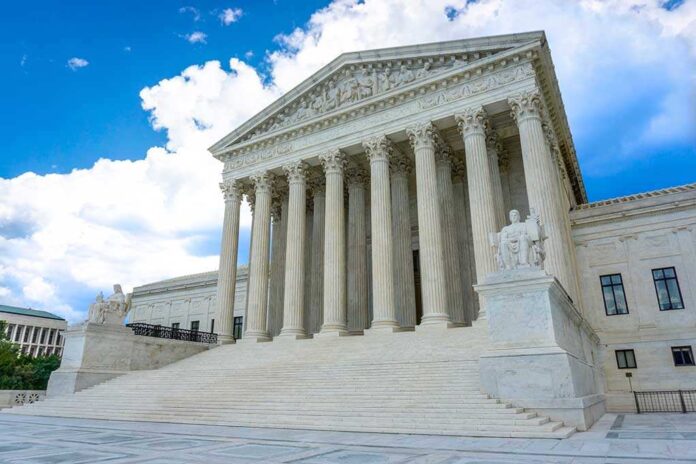
The Supreme Court’s decision to uphold a Tennessee law banning drag performances where minors might be present fuels an intense debate about artistic freedom and censorship.
Quick Takes
- A federal judge ruled the Tennessee law unconstitutional, conflicting with prior rulings.
- The law bans drag performances in public areas, mainly those accessible to minors.
- This decision is part of a broader Republican effort to limit drag shows.
- The ruling sheds light on the ongoing debate between state authority and creative liberty.
The Legal Landscape
A federal judge initially deemed Tennessee’s law, which restricts drag performances in public spaces or where children are present, as unconstitutional. U.S. District Judge Thomas Parker declared the law “unconstitutionally vague and substantially overbroad.” Despite this, the Supreme Court has now upheld the legislation, generating contrasting legal opinions and a concentrated focus on First Amendment rights and legal interpretations.
The law, signed by Governor Bill Lee, is part of broader efforts in at least fifteen states to impose restrictions on drag performances. It imposes fines and potential prison sentences on violators, with increased penalties for repeat offenses. These provisions underscore the ongoing political discourse surrounding gender, performance art, and youth exposure, and highlight the substantial legal consequences for those who defy this legislation.
Artistic Freedom or Censorship?
The Supreme Court’s stance has highlighted the tension between ensuring cultural freedom and reinforcing state authority. GLAAD, an LGBTQ advocacy group, hailed the federal judge’s prior ruling as a significant milestone in preserving LGBTQ rights while expressing concern over the Supreme Court’s decision. GLAAD stated, “This ruling is a turning point and we will not go back.”
The ruling raises questions about how drag performance affects cultural and artistic identities, sparking a broader discussion on whether regulations like these break crucial constitutional protections of free speech and expression. Both sides of the debate seek a balanced approach to protect young audiences while preserving artistic expression.
The Path Ahead
The ruling has prompted further scrutiny of anti-LGBTQ laws. Ahead of the 2024 elections, over 500 bills regulating LGBTQ conduct have emerged nationwide, with a significant number poised to pass. Observers emphasize that the First Amendment obligates any law infringing on free speech to be well-defined and narrowly tailored.
This development forces all anti-LGBTQ elected officials to recognize that imposing these laws challenges fundamental constitutional freedoms, including speech and expression. As the nation watches, the debate over artistic freedom versus censorship remains vigorous and unresolved.
Sources:
- Federal judge rejects Tennessee drag show ban as unconstitutional
- Supreme Court declines to take up challenge to Tennessee law restricting drag shows
- Supreme Court Leaves Tenn. Drag Ban Intact | Newsmax.com












